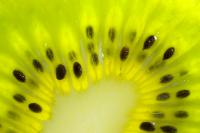New Zealand Prime Minister Helen Clark has not set a deadline for becoming “carbon neutral,” but she did say the nation can aim to be the first to be “truly sustainable” across the four pillars of economy, society, the environment and nationhood.
“I believe we can aspire to be carbon neutral in our economy and way of life,” Clark said.
The nation has a record of standing firm on global issues. In 1984 the government introduced the world’s first nuclear-free policy, banning all vessels that were nuclear- powered or carrying nuclear weapons. The policy strained its alliance with the US, but it was popular with voters and has been kept in place.
Clark already has committed New Zealand to more ambitious environmental targets than other countries, including replacing 3.4 per cent of its gasoline and diesel sales with biofuels by 2012. She promised government would lead by example, with six departments achieving carbon neutrality by 2012 by reducing their emissions and offsetting them by planting trees.
Subscribe to our newsletter
Stay up to date with DeSmog news and alerts






